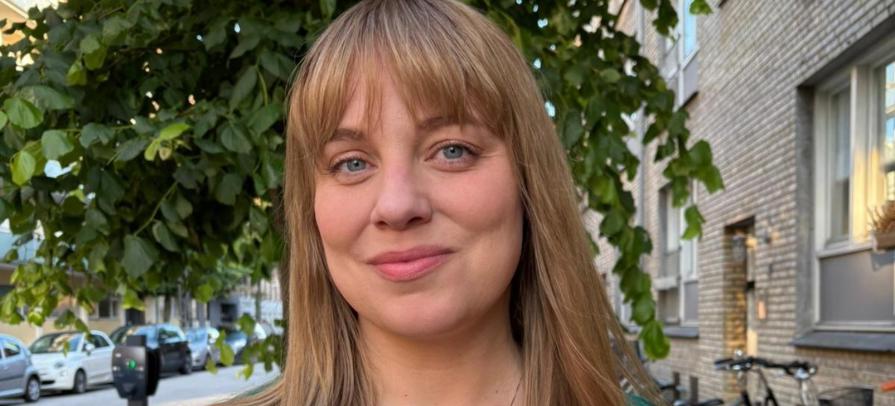Elisabeth Skarðhamar Olsen vart ph.d. um staðbundnan matbúskap
Mánadagin 23. juni vardi Elisabeth Skarðhamar Olsen ph.d.-ritgerð sína í Human Geography á Lancaster Environment Centre í Lancaster University í Onglandi. Verjan gekk væl og varð staðin, treytað av, at nakrar rættingar verða gjørdar í ritgerðini. Hetta er vanlig mannagongd í Onglandi.
Ph.d. ritgerðin kannar og viðger staðbundna matbúskapin í Føroyum og í vesturafrikanska oyggjasamfelagnum São Tomé e Príncipe. Heitið á ritgerðini er “Forking Sustainability Pathways? Engaged research on local food practices in the Faroe Islands and São Tomé e Príncipe”. Tvær greinar frá ph.d. ritgerðini eru útgivnar.
Í granskingartilgongdini hevur Elisabeth samstarvað við eldsálir og felagsskapir í Føroyum og í São Tomé e Príncipe, sum fáast við staðbundna matframleiðslu, burðardygd og matsjálvbjargni.
Í Føroyum samstarvaði hon við Sunnivu Gudmundsdóttir Mortensen úr Slow Food Føroyar og Matkovanum, umframt Selmu Dahl Erol, fyrrverandi nevndarlim í Føroya Náttúru og Umhvørvisfelag. Umframt at gera samrøður við matframleiðarar kring landið hava tær skipað fyri ráðstevnu, verkstovum og øðrum tiltøkum um matsjálvbjargni, regenerativan landbúnað, fræ vistfrøði og annað.
Í São Tomé e Príncipe samstarvaði Elisabeth við felagsskapin FENAPA, sum umboðar smá-bøndur í landinum (FENAPA er stytting fyri Federação Nacional dos Pequenos Agricultores de São Tomé e Príncipe).
Vegleiðararnir hjá Elisabeth vórðu Giovanni Bettini, ph.d. á Lancaster Environment Centre á Lancaster University og Rebecca Whittle, ph.d., umframt Ragnheiður Bogadóttir, ph.d., lektari á Søgu- og samfelagsdeildini á Fróðskaparsetri Føroya.
Í metingarnevndini vórðu Marisa Wilson, ph.d. á School of Geosciences á Edinburgh University (uttanhýsis) og Christina Hicks, Professari á Lancaster Environment Centre á Lancaster University (innanhýsis).
Elisabeth hevur síðan august 2024 verið í starvi sum námslektari í samfelagsvísindum á Søgu- og samfelagsdeildini á Fróðskaparsetri Føroya. Sí fakliga vangan hjá Elisabeth her.
Granskingarráðið hevur stuðlað hesi ph.d. verkætlanini.
Samandráttur av ritgerðini á enskum:
This thesis offers a unique analysis and perspective on the subsistence-oriented food economy in two small island countries - the Faroe Islands and São Tomé e Príncipe. Based upon empirical material generated through an engaged research process with food activists and small-scale food producers in the two contexts, the research questions addressed are: What characterises the subsistence-oriented food economies in the Faroe Islands and São Tomé e Príncipe? What logics, principles and values do they consist of? And how might these inform transformative sustainability pathways? With this as analytical focus, the thesis aims to contribute with empirical insights and theorisation in directions that go beyond critique of the status quo. By focusing on already existing ‘sustainabilities’ in the sphere of food (re)production in the two contexts (the prevalence of mutual aid, non-monetary relations of exchange, a sufficiency-mindset, etc.), the thesis aspires to ignite glimmers of hope and inspiration for policymakers, community organisers and other social actors when it comes to forging contextually meaningful and transformative sustainability pathways. The thesis body comprises four chapters (structured as stand-alone papers), which each explore dimensions of the research questions across the cases. The positionality of the researcher (being herself from the Faroe Islands) has entailed radically different approaches in terms of research design and participatory processes in the two contexts, with participatory and action dimensions more substantive in relation to the Faroese context in the final thesis. In addition to elaborating a reflexive and situated approach to participatory research with local communities in different contexts across the global North-South line, the thesis also contributes with reflections on another methodological conundrum, namely, how to support existing sustainabilities and alternatives to growth through engagement in the field and simultaneously contribute to the advancement of knowledge that can feed into academic post-growth theorisation.
